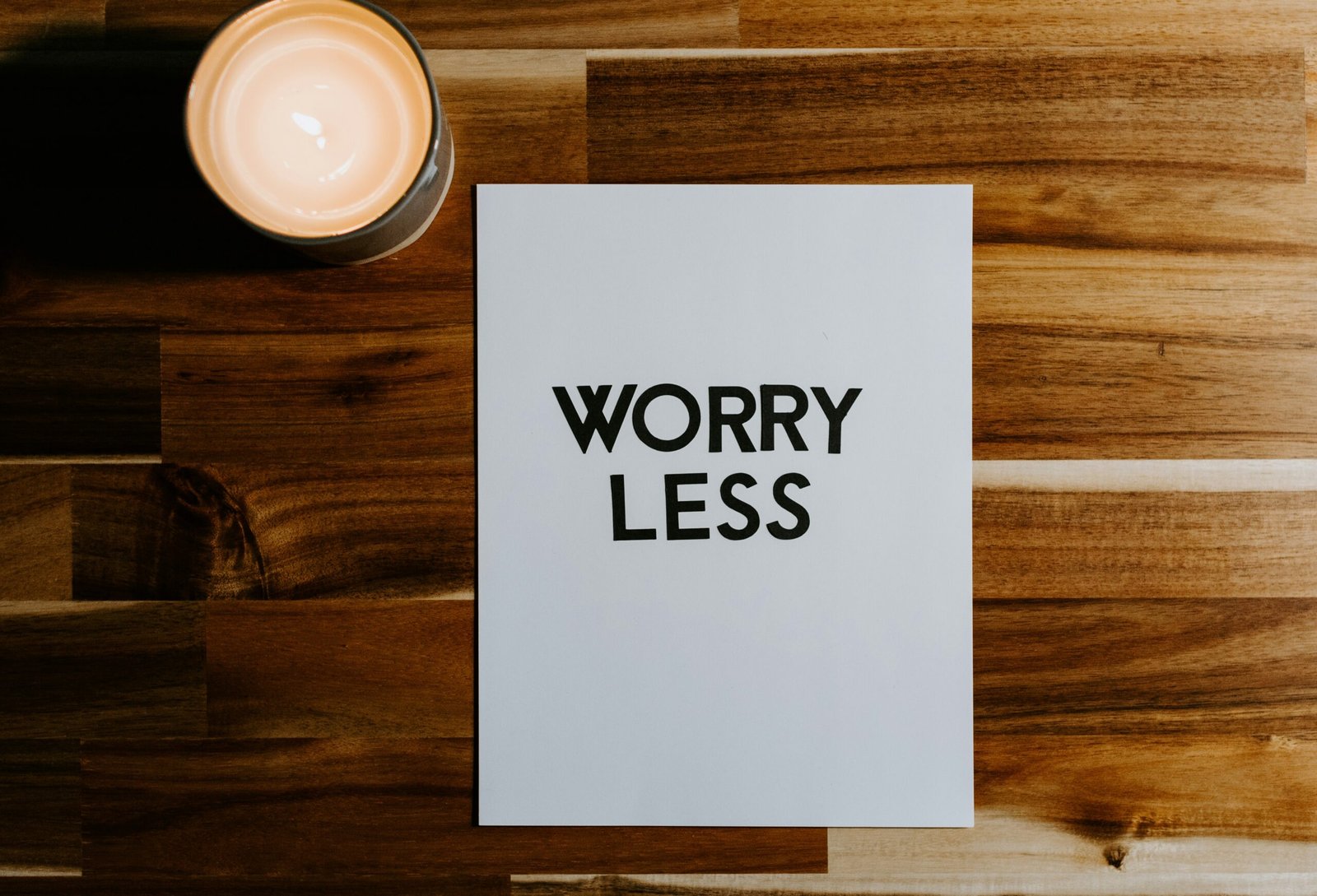Understanding Conflict in Partnerships
In any partnership, whether personal or professional, conflicts are an inevitable aspect of the relationship dynamics. Understanding the nature of these conflicts is essential for fostering effective conflict resolution strategies and reinforcing long-term relationships. One of the primary sources of disagreement in partnerships often stems from differing values. Partners may come from distinct cultural, social, or ideological backgrounds, leading to a divergence in beliefs and priorities. When these fundamental beliefs clash, it can create friction and misunderstandings that require careful navigation.
Additionally, varying expectations play a significant role in conflict dynamics. Each partner enters the relationship with their own set of expectations regarding roles, responsibilities, and long-term goals. When these expectations are not clearly communicated or align with one another, it can result in disappointment and frustration. Misalignment in expectations often leads to conflicts that could have been avoided through open dialogue.
Another critical factor to consider is the diversity in communication styles. Different individuals may prefer distinct modes of communication, which can result in misinterpretations or escalation of conflicts. For instance, one partner may favor direct communication, while the other may lean towards a more passive approach. This disparity can lead to a cycle of misunderstanding and resentment, hampering the resolution process.
Moreover, external pressures such as work-related stress or familial obligations can exacerbate these conflicts, causing partners to react in ways that may not align with their true feelings or intent. Recognizing these dynamics is crucial for addressing the underlying causes of conflict. Effective conflict resolution in long-term relationships hinges upon understanding these complex factors, allowing partners to engage in meaningful dialogues that can lead to mutual understanding and resolution.
The Importance of Effective Communication
Effective communication is crucial in the realm of conflict resolution for long-term relationships. The ability to convey thoughts and feelings clearly can significantly mitigate misunderstandings, thereby fostering a healthier partnership. One vital technique to improve communication during conflict is active listening. This involves fully concentrating on the speaker, understanding their message, and responding thoughtfully. By showing genuine interest and validating the other person’s perspective, individuals can create an environment conducive to open dialogue, which is essential for resolving disagreements.
Another fundamental aspect of effective communication is clarity in expression. When individuals articulate their thoughts and emotions clearly, it minimizes the risk of misinterpretation. Instead of using vague language or blaming statements, individuals should strive for “I” statements, such as “I feel” or “I need.” This approach encourages personal accountability while reducing defensiveness, which can escalate conflicts. Moreover, practicing empathy during these conversations can enhance mutual understanding and facilitate a more constructive exchange of ideas.
Maintaining an open dialogue is another key to successful conflict resolution in long-term partnerships. Creating a safe space for discussions allows both parties to express their concerns without fear of judgment. Regularly scheduled conversations centered around feelings, expectations, and experiences can further strengthen this communication foundation. Additionally, integrating feedback from past discussions helps partners to adjust their approaches and expectations over time, leading to more effective conflict resolutions in the future.
Ultimately, by prioritizing these communication techniques, partners can transform potential conflicts into opportunities for growth and understanding. Enhanced communication not only aids in resolving immediate issues but also fortifies the relationship, making it resilient against future challenges.
Emotional Intelligence in Conflict Resolution
Emotional intelligence (EI) is the capacity to recognize, understand, and manage our own emotions while simultaneously being able to identify and influence the emotions of others. In the realm of conflict resolution, particularly within long-term relationships, EI plays a critical role. The ability to empathize with a partner’s feelings and perspectives can transform potentially destructive disagreements into constructive dialogues.
One of the fundamental components of emotional intelligence is self-awareness. This refers to the ability to evaluate one’s own emotional states and understand how these feelings can affect interactions with others. In conflict situations, individuals with high self-awareness are better equipped to control their emotional reactions, which allows them to approach disagreements with a calm and rational mindset. By recognizing their triggers or emotional responses, these individuals can take a step back, reflect, and engage in a constructive manner, thereby fostering healthier communication.
Another crucial aspect of EI is empathy, which is the ability to put oneself in another person’s shoes and understand their emotional experiences. In the context of conflict resolution in long-term relationships, empathy enables partners to appreciate each other’s viewpoints—even when they disagree. When individuals actively listen and validate each other’s feelings, it not only enhances understanding but also builds trust. Partners who demonstrate empathy are often more willing to collaborate on solutions that satisfy both parties, promoting a sense of teamwork and mutual respect.
Ultimately, harnessing emotional intelligence in conflict resolution allows partners to address misunderstandings and disagreements more effectively. As individuals become more adept at navigating emotional landscapes, they can cultivate healthier, longer-lasting relationships while minimizing the negative impacts of conflict. By fostering self-awareness and empathy, couples can significantly enhance their ability to resolve disputes and strengthen their connection over time.
Techniques for Conflict Resolution
Effective conflict resolution techniques are essential for maintaining long-term relationships. These methods not only address the disagreement at hand but also strengthen the bond between individuals. Here, we explore several techniques that can help navigate conflicts and promote harmony.
Collaborative Problem-Solving: This technique involves both parties working together to identify the root cause of the conflict and finding a mutually beneficial solution. By encouraging open communication, each individual can contribute their perspective and needs, leading to a more comprehensive understanding of the issue. This approach fosters teamwork and respect, which can significantly enhance the relationship’s foundation. It is particularly effective in scenarios where both parties have a vested interest in achieving a positive outcome.
Compromise: Compromise requires each party to give up something to reach a resolution. While it may seem that neither side gets everything they want, this technique can be effective in situations where a timely solution is essential, and the parties are willing to meet halfway. Compromising can help diffuse tension and demonstrate a willingness to cooperate, which is vital in nurturing long-term relationships. It is particularly applicable when both parties hold equally valid but opposing views.
Mediation: Mediation involves a neutral third party facilitating a discussion between the conflicting individuals. This technique can be beneficial when disagreements escalate and communication breaks down. The mediator helps to clarify issues, express feelings, and explore possible solutions without favoring either side. Mediation can give individuals a safe space to voice their concerns, making it an excellent option for relationships that may struggle with direct confrontation.
Incorporating these conflict resolution techniques can lead to more harmonious interactions and strengthen long-term relationships by addressing issues constructively and collaboratively.
Setting Ground Rules for Conflict Resolution
Establishing ground rules for conflict resolution is essential in fostering healthy and lasting partnerships. These parameters act as a guiding framework that facilitates respectful communication and ensures emotional safety during difficult conversations. The first step is to agree on respectful communication. This involves actively listening to each other, refraining from interrupting, and expressing thoughts and feelings without resorting to blame or personal attacks. Such an approach not only nurtures understanding but also minimizes the likelihood of escalating tensions.
Another crucial aspect is to determine the appropriate timing for discussions. It is often advisable to avoid initiating conflict resolution when either party is feeling overly emotional or stressed. Agreeing to check in with each other can provide a more conducive environment for dialogue. Setting a specific time to discuss concerns can allow both partners to prepare mentally and emotionally, thereby enhancing the effectiveness of the conversation. This ensures that partners engage in discussions when they can be fully present and rational, leading to more productive outcomes.
Additionally, there should be a clear strategy in place for taking breaks if emotions start to run high. Recognizing when either partner is becoming overwhelmed allows for a pause, enabling both individuals to regain composure. Agreeing that it is completely acceptable to take a step back can prevent situations from becoming counterproductive. It is important to specify how this break will work—such as setting a timer for a certain duration—beforehand, assuring that both partners feel understood and supported throughout the process.
By implementing these ground rules, partners can promote constructive dialogue and enhance their capacity to resolve conflicts effectively. This approach not only resolves immediate issues but also lays the groundwork for fostering a deeper understanding and strengthening conflict resolution in long-term relationships.
The Role of Forgiveness in Lasting Partnerships
Forgiveness plays a pivotal role in conflict resolution and the maintenance of long-term relationships. It often serves as a foundation upon which enduring partnerships are built, allowing individuals to navigate the complexities of interpersonal dynamics more effectively. Importantly, forgiveness should not be conflated with forgetting; rather, it involves the conscious decision to let go of resentment and grudges that may otherwise impede relationship growth.
In the context of conflict resolution, the act of forgiving frees both parties from the burdens of past grievances. Studies have demonstrated that harboring resentment can adversely affect emotional well-being, leading to stress and relational strain. By choosing to forgive, individuals not only alleviate personal distress but also pave the way for open communication and mutual understanding. This transformation often deepens the emotional connection between partners, reinforcing their commitment to each other.
Real-life examples illustrate the transformative power of forgiveness. For instance, consider a couple who faced significant challenges when one partner made a major financial decision without consulting the other. Initially, this led to conflict, hurt feelings, and a potential rift. However, through open dialogue, acknowledging the issue, and ultimately forgiving each other, they were able to move beyond the incident. This process not only restored their partnership but also fostered a deeper understanding of each other’s values and decision-making processes.
Forgiveness enables partners to grow individually while simultaneously strengthening their bond. It reflects an essential aspect of emotional intelligence, where one learns to recognize and manage their feelings effectively. By embracing forgiveness as a regular practice in conflict resolution, couples can enhance their ability to navigate future disagreements and build a resilient relationship capable of withstanding life’s challenges.
Learning from Conflicts: Growth and Development
Conflict is often viewed negatively, yet it presents invaluable opportunities for individuals in long-term relationships to grow and develop. When conflicts arise, they can create an atmosphere of tension and discomfort, but when approached constructively, they can foster improved understanding and deeper connections. The process of navigating conflicts requires partners to engage actively, listen attentively, and communicate effectively, all of which are essential skills in any enduring relationship.
One key aspect of conflict resolution is recognizing the learning potential embedded within disagreements. Each conflict serves as a mirror reflecting the underlying issues that may not have been previously addressed. By identifying these issues through open dialogue, individuals can gain insights into their own behavior, as well as that of their partners. This self-awareness is crucial for developing effective conflict resolution skills, which can mitigate future misunderstandings. Instead of seeing conflict as a problem, partners can view it as an opportunity for enhancement and growth in their dynamic.
Furthermore, acknowledging and addressing conflicts can lead to increased empathy and emotional intelligence. Partners who engage in conflict resolution learn to appreciate differing perspectives, ultimately leading to a strengthened bond. This process of understanding one another’s viewpoints not only mitigates current tensions but also prepares individuals for navigating future conflicts more adeptly. The development of robust conflict resolution skills in long-term relationships encourages partners to navigate disagreements more compassionately and effectively in the future.
Ultimately, embracing conflicts as a means of learning can transform the way partnerships function. Rather than perceiving conflicts as setbacks, individuals can cultivate resilience and adaptability. By prioritizing growth and development through conflict resolution, partnerships can flourish and withstand the tests of time.
When to Seek Professional Help
In the journey of maintaining long-term relationships, conflicts can arise that are challenging to navigate independently. While many disputes can be resolved through open communication and mutual understanding, there are specific scenarios where seeking professional help becomes essential for effective conflict resolution. Recognizing these signs is crucial for fostering healthier relationships.
One clear indicator that professional assistance may be necessary is when communication has broken down. If discussions tend to lead to arguments rather than constructive dialogue, the relationship may benefit from the intervention of a mediator or counselor. Furthermore, repeated patterns of conflict that do not resolve, despite attempts at discussion, can signal a deeper issue that requires professional insight. These patterns often indicate underlying emotions or unresolved concerns that are complicating the resolution process.
Another situation demanding professional help is when conflicts escalate beyond the ability of the individuals involved to manage effectively. This escalation can involve intense emotions, such as anger or frustration, that may cloud judgment and hinder resolution. A neutral third party can offer a safe space for both sides, guiding them toward understanding and resolution, thereby promoting relationship stability.
Moreover, if individuals find themselves unable to empathize with one another’s perspectives, it may be beneficial to involve a professional. They can facilitate discussions that foster empathy and understanding, essential components of conflict resolution in long-term relationships. Expecting professional conflict resolution services to provide strategies tailored to individual needs can significantly enhance the likelihood of achieving a positive outcome. Ultimately, recognizing the need for external support is a proactive step toward preserving and strengthening lasting partnerships.
Conclusion: Building Resilience in Partnerships
In the realm of long-term relationships, the ability to navigate conflicts is paramount. Throughout this discussion, we have explored various conflict resolution techniques that not only aim to resolve disputes but also strengthen the foundation of partnerships. It is essential to recognize that effective conflict resolution is a skill, one that requires practice and a commitment to personal growth. By incorporating techniques such as active listening, empathetic communication, and collaborative problem-solving, partners can foster an environment where challenges become opportunities for deeper understanding.
Moreover, building resilience in partnerships is a continuous journey. Relationships are dynamic, and the ability to adapt to change and address issues as they arise is crucial for long-term success. Emphasizing adaptability allows partners to reframe conflicts as mutual learning experiences rather than insurmountable obstacles. This shift in perspective can transform the way relationships manage disagreements, reinforcing the idea that conflict is not an endpoint, but rather a part of the relationship’s evolution.
As we conclude our examination of conflict resolution techniques for lasting partnerships, it is vital to emphasize the importance of remaining open to learning. Embracing a mindset of continual improvement enables couples to better understand each other’s perspectives and needs. Engagement in open dialogue promotes an atmosphere ripe for growth and healing, ensuring that partners feel valued and heard. Ultimately, integrating these conflict resolution strategies can lead to healthier dynamics, enabling relationships to thrive through challenges and emerge stronger. The commitment to effective conflict resolution is, therefore, an investment in the longevity and resilience of the partnership.











